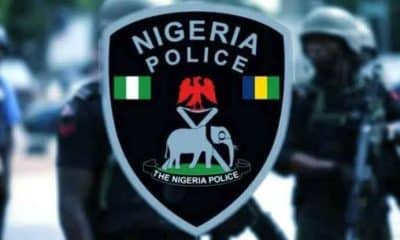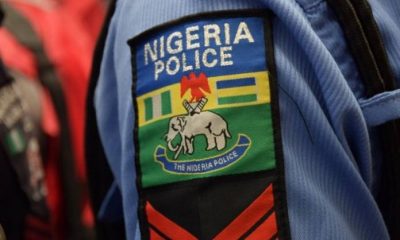Nigeria News
IG restates commitment of Nigeria Police Force to human rights protection

The Inspector General of Police (IGP), Mr Ibrahim Idris, says the Nigeria Police Force will ensure the rule of law and human rights best practices in the discharge of its constitutional mandate.
Idri, represented by the Deputy IGP in charge of Training and Development, Mr Sani Mohammed, said this in Umuahia on Monday, at the opening of a two-day human rights training programme.
The programme was organised by the Nigerian police force, in collaboration with Prisoners’ Rehabilitation and Welfare Action (PRAWA), a non-governmental organisation.
He said: “the fundamental duties of a police officer include serving the community, safeguarding lives and property, protecting the innocent, keeping peace and ensuring that the rights of all to liberty, equality and justice is respected.”
Idris said that to achieve this, an enhanced human rights teaching syllabi were developed to address gaps in the existing police teaching curriculum in police training institutions, particularly the area dealing with human rights principles.
He said that a human rights training manual was also developed as a major resource for the teaching of Human Rights Principles in police training, to further achieve the target objective.
He expressed confidence that the series of seminars and workshops being organised for police officers would help to equip them with the necessary skills to protect human rights in the discharge of their duties.
“It offers the opportunity to equip us with the necessary skills, knowledge and attitudes to effectively discharge our duties in accordance with the rule of law and in accordance with human rights best practices.”
The inspector general of police said the training was an outcome of a dialogue between the Swiss Government and the Ministry of Foreign Affairs, Police Service Commission and the Police.
Also involved in the dialogue were the National Human Rights Commission, UN agencies and specialised NGOs for the exchange of skills in the field of education and training to promote and protect human rights.
The Commissioner of Police in the state, Mr Chris Ezike, said that the paradigm in policing had shifted to community policing, adding that this could not be achieved without respect for human rights.
Ezike charged the participants to utilise the training they would receive to make positive contributions towards the improvement of the police organisation and humanity.
In his speech, Gov. Okezie Ikpeazu of Abia, commended the organisers of the training and added that the capacity building for the police would help them in providing excellent policing.
Ikpeazu said, “the multiplier effect of the programme will complement Federal Government’s efforts to lift Nigeria out of economic doldrums to become economically robust and successful.”
Also, Mrs Anne-Beatrice Bullinger, Deputy Head of Mission of Swiss Embassy in Nigeria, described efforts made to promote the principles of human rights as valuable and commendable.
“We are going to help support this drive to build a police force that will not be a threat to the people but will protect the people,” Bullinger said.
In her address of welcome, Mrs Uju Agomoh, the Executive Director of PRAWA, said that it was pertinent for the police to mainstream human rights principles in its operations.
Agomoh said that it was expected that the training would provide a platform that would enlighten and encourage police officers to actively contribute in the fight against human rights violation.
Chief Ume Kalu, the Commissioner for Justice and Attorney-General of the state, said that human rights were integral to the ethos of society and the police had the responsibility to protect them.
Kalu, who was represented by Mrs Chibuzo Ehiemere, a senior officer in the ministry, said that human rights-based policing would help the force to get maximum result from their community policing programme.
The workshop was attended by participants drawn from the police force, Nigerian Security and Civil Defence Corps (NSCDC), Department of State Services (DSS) and Federal Road Safety Commission












